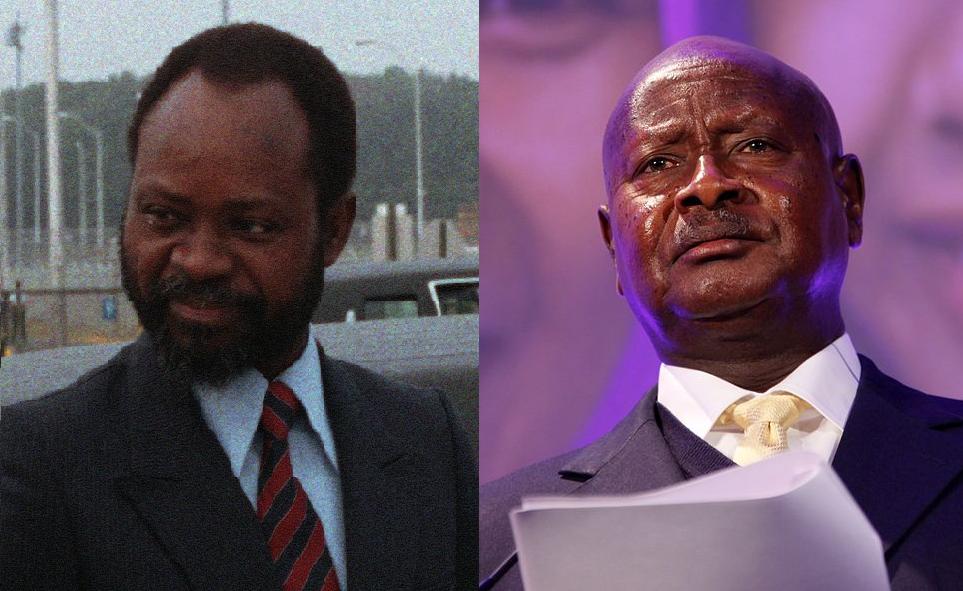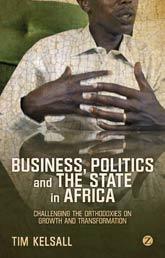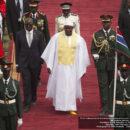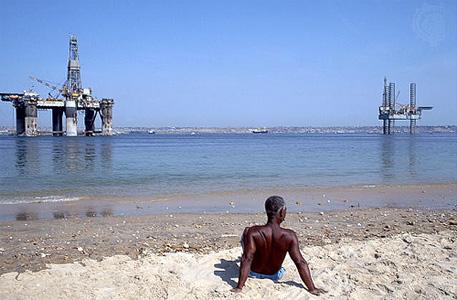Africa and the succession trap – By Tim Kelsall


Mozambique's Samora Machel built a strong consensual party with a succession tradition. Uganda's Yoweri Museveni has not.
2012 was a tough year for African leaders: one resigned, one was sacked, two were overthrown in coups, two were defeated in elections, and three died in office. Even in states like Angola where incumbents remained in power, the question of leadership succession was rarely far from the agenda. In 2013 we can expect the topic also to be hot in Madagascar, Kenya and Zimbabwe, all scheduled to hold Presidential elections later this year.
Succession is an inevitability of political life, and there are several ways to accomplish it, from dynastic inheritance to assassination to a competition for votes. Some states do it better than others, however, and it’s fair to say that Africa has had more than its share of disorderly successions. Even where succession does not lead directly to violence or state breakdown, uncertainty surrounding the process can damage economic growth, as happened in fast-growing states like Kenya, Cí´te d’Ivoire and Malawi in the 1970s and 1980s.
Economic growth and leadership succession
Since African economies are now growing strongly again, it seems pertinent to ask whether growth will once more be undermined by problems of political succession. In many cases the answer unfortunately appears to be “˜Yes’. Part of the problem is personal, or “˜big-man’ rule, sometimes called “˜neo-patrimonialism’. As I show in a book published tomorrow, these forms of governance are not necessarily obstacles to economic growth; however, growth under the purer types of personal rule rarely lasts more than one or two decades. When pro-growth policies and property arrangements are closely associated with just one man (or woman), the demise of that individual is likely to induce damaging uncertainty in investors.
So how do states avoid the succession trap? In a new Working Paper and Policy Brief for the Developmental Regimes in Africa Project, I answer this question by comparing sub-Saharan Africa with Southeast Asia, a similar, but economically more successful region. I combine historical analysis with systematic comparison to tease out the factors uniting those countries that combined high growth with succession (Laos, Malaysia, Mozambique, Thailand and Vietnam), and distinguishing those that fell into a succession trap (Cí´te d’Ivoire, Indonesia, Kenya, Malawi).1
I found that high growth was more likely to be sustained through succession if leaders handed over power before the age of 75, if the country had a fairly homogenous ethnic structure, if the state had its roots in an identifiable pre-colonial political formation, and if the external economic environment was favourable. However, there were exceptions across the board, making these contributing, not crucial, conditions.
In addition, I found a combination of three conditions present across all the regimes that combined succession with high growth, and absent from those that didn’t. First, leaders were motivated to search for growth to stave off perceived threats to their survival from external aggression, popular mobilization, and/or resource scarcity. Second, all had broadly pro-market and pro-foreign investment policy packages, although all retained substantial state involvement in the economy. And third, all the successful regimes embedded policy-making in strong institutions of one or other of two types:
- a dominant party with a tradition of consensual decision-making and leadership succession, or
- a strong, organic bureaucracy, effectively insulated from changes in political leadership.
Examples
Mozambique provides an example of the first type. Between 1997 and 2010, the country experienced growth of 7.83 percent, despite a change of leadership in the ruling Liberation Front of Mozambique (FRELIMO). FRELIMO was formed in opposition to Portuguese rule in 1962 by an elite group of assimilated Africans. A tradition of orderly succession was established in 1969, when Eduardo Mondlane, FRELIMO’s founding president, was killed by a parcel bomb. Although party vice-president Uria T. Simango was appointed successor at a meeting of the Executive Committee, this decision was overturned by FRELIMO’s more powerful Central Committee, with Samora Machel becoming President. When Machel died in a plane crash in 1986, the Central Committee nominated Joaquim Chissano as President. In 2002, Chissano announced that he would not contest the next Presidential election, and the party congress nominated Armando Guebuza to succeed him.
Like all political parties, FRELIMO has its tensions, but these are muted by an impressive sense of mutual loyalty and internal cohesion. Forged during the liberation war, unity has been maintained even though FRELIMO has abandoned its historic commitment to socialism and taken measures to encourage private enterprise. A stream of investments has followed.
Thailand is (the only) example of the second type. Between 1961 and 1998 growth there averaged more than 7 percent, notwithstanding more than 15 leadership changes, as power oscillated between military factions and weak civilian parties. Predictability was provided by an organic bureaucracy with roots in the 19th century, in which specialized pro-growth agencies were created in the 1950s. Continuity in the mission and personnel of these agencies gave domestic and international investors confidence, despite a bewildering number of political successions.
Growth and succession in contemporary Africa
Currently there are three countries in Africa that have maintained high growth for more than a decade but have yet to experience a political succession: Angola, Rwanda and Uganda. All are ruled by dominant “˜liberation struggle’ parties. More research is needed, but it seems probable that the RPF in Rwanda has some of the same unity of purpose as FRELIMO, despite the towering presence of Paul Kagame, and the prospects for succession with growth appear good. In Angola and Uganda, however, leaders are older, external threats are less severe, and despite their post-liberation history, power is more personalised. In states like this, the prospects for combining succession with growth are poor.
To avoid the succession trap, political and economic actors need to devise institutions that can supply credible commitments for investors in a context of transition. In 17th century England, this happened when the King acceded to a range of formal checks on his power, an experience echoed in currently fashionable development thinking like Prime Minister David Cameron’s ‘golden thread’ or Acemoglu and Robinson’s ‘inclusive institutions’. Successful Asian and African countries have done things differently, however. Making  strong but personalised ruling parties more collegial and consensual, or strengthening and insulating the bureaucracy where parties are weak, might be more realistic alternatives.
strong but personalised ruling parties more collegial and consensual, or strengthening and insulating the bureaucracy where parties are weak, might be more realistic alternatives.
Tim Kelsall has taught politics at the Universities of Oxford and Newcastle, and is a former editor of African Affairs. He is currently working freelance for the Developmental Regimes in Africa Project and the Partnership for African Social and Governance Research. His latest book, Business, Politics and the State in Africa: Questioning the orthodoxies on growth and transformation, is published by Zed.
Note
[1] I excluded countries with a population of under five million (eg Botswana) and also countries where a portion of the growth phase could be accounted for by a peace dividend (eg Ethiopia, Myanmar). I defined high growth as growth of at least 7% per annum.






